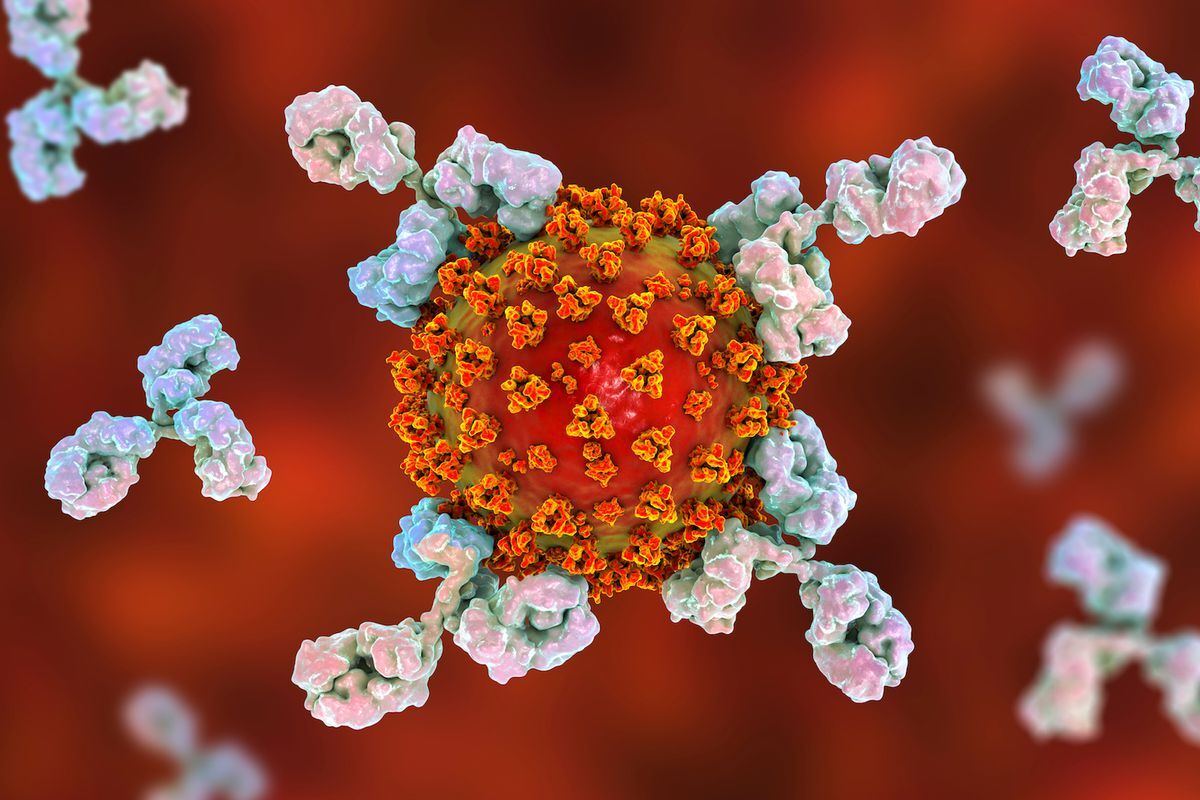
Antibodies are like tiny superheroes in your body, fighting off invaders like bacteria and viruses. But what exactly are they? Antibodies are proteins produced by your immune system to identify and neutralize harmful substances. They play a crucial role in keeping you healthy by recognizing and binding to specific antigens, which are molecules found on the surface of pathogens. This binding action helps your immune system destroy these invaders. Antibodies can also remember past infections, providing immunity against future attacks by the same pathogen. Understanding these amazing proteins can help you appreciate how your body defends itself every day. Ready to learn more? Let's dive into 38 fascinating facts about antibodies!
What Are Antibodies?
Antibodies are proteins produced by the immune system to help fight infections. They recognize and neutralize foreign substances like bacteria and viruses. Here are some fascinating facts about these tiny defenders.
-
Antibodies are also known as immunoglobulins. These proteins come in different types, each with a unique role in the immune response.
-
There are five main classes of antibodies: IgA, IgD, IgE, IgG, and IgM. Each class has a different function and location in the body.
-
IgG is the most common antibody in blood and other body fluids. It protects against bacterial and viral infections.
-
IgA is found in mucous membranes, such as the gut, respiratory tract, and urogenital tract. It plays a crucial role in immune function in these areas.
-
IgM is the first antibody produced in response to an infection. It is primarily found in the blood and lymphatic fluid.
How Antibodies Work
Understanding how antibodies function can shed light on their importance in our immune system. They work through various mechanisms to protect the body.
-
Antibodies neutralize pathogens by binding to them. This prevents the pathogens from entering cells and causing infection.
-
They can also mark pathogens for destruction by other immune cells. This process is known as opsonization.
-
Antibodies activate the complement system. This system consists of proteins that help destroy pathogens.
-
They can agglutinate pathogens. This means they cause pathogens to clump together, making them easier for immune cells to eliminate.
-
Antibodies can also neutralize toxins. They bind to toxins released by pathogens, preventing them from harming the body.
The Role of Antibodies in Vaccines
Vaccines rely on antibodies to provide immunity against diseases. Here's how they play a role in vaccination.
-
Vaccines stimulate the production of antibodies. They introduce a harmless part of a pathogen to the immune system, prompting it to produce antibodies.
-
Memory cells are created during vaccination. These cells remember the pathogen and can quickly produce antibodies if the body encounters it again.
-
Booster shots increase antibody levels. They help maintain immunity by boosting the number of antibodies in the body.
-
Some vaccines require multiple doses. This ensures a strong and lasting immune response.
-
Antibodies from vaccines can last for years. However, the duration of immunity varies depending on the vaccine and the individual.
Antibodies in Medical Treatments
Antibodies are not just for fighting infections; they also have various medical applications. Here are some ways they are used in treatments.
-
Monoclonal antibodies are used to treat cancer. These lab-made antibodies can target specific cancer cells.
-
They are also used in autoimmune disease treatments. Monoclonal antibodies can help regulate the immune system.
-
Antibody therapy is used for infectious diseases. This includes treatments for diseases like Ebola and COVID-19.
-
Antibodies can be used in diagnostic tests. They help detect the presence of pathogens or other substances in the body.
-
They are also used in allergy treatments. Antibodies can block the action of allergens, reducing allergic reactions.
Interesting Facts About Antibodies
Here are some more intriguing facts about antibodies that highlight their versatility and importance.
-
Antibodies are Y-shaped molecules. This shape allows them to bind to antigens effectively.
-
Each antibody has two antigen-binding sites. This enables them to bind to two antigens simultaneously.
-
The human body can produce billions of different antibodies. This diversity allows the immune system to recognize a vast array of pathogens.
-
Antibodies can cross the placenta. This provides newborns with passive immunity from their mothers.
-
They are also present in breast milk. This helps protect infants from infections.
Antibodies and Autoimmune Diseases
Sometimes, antibodies can mistakenly target the body's own tissues, leading to autoimmune diseases. Here are some facts about this phenomenon.
-
Autoantibodies are antibodies that attack the body's own cells. They are involved in autoimmune diseases like lupus and rheumatoid arthritis.
-
The exact cause of autoantibody production is unknown. It is believed to involve a combination of genetic and environmental factors.
-
Autoimmune diseases can affect any part of the body. This includes the skin, joints, and organs.
-
Treatment often involves suppressing the immune system. This helps reduce the activity of autoantibodies.
-
Early diagnosis is crucial for managing autoimmune diseases. It can help prevent severe damage to the body.
Antibodies in Research
Antibodies are invaluable tools in scientific research. They help scientists understand diseases and develop new treatments.
-
Antibodies are used in immunohistochemistry. This technique helps visualize the presence and location of proteins in tissue samples.
-
They are also used in flow cytometry. This method analyzes the physical and chemical characteristics of cells.
-
Western blotting relies on antibodies. It detects specific proteins in a sample.
-
Antibodies are used in enzyme-linked immunosorbent assays (ELISA). This test measures the concentration of substances in a liquid sample.
-
They are essential for studying cell signaling. Antibodies help identify and track signaling molecules.
Fun Facts About Antibodies
Let's end with some fun and surprising facts about antibodies that you might not know.
-
Sharks have unique antibodies. Their antibodies are smaller and more stable than those of humans.
-
Llamas and alpacas produce special antibodies. These antibodies are being studied for their potential in treating diseases.
-
Antibodies can be engineered in the lab. Scientists can create antibodies with specific properties for research and treatment.
The Power of Antibodies
Antibodies play a crucial role in our immune system. They identify and neutralize harmful invaders like bacteria and viruses. Without them, our bodies would struggle to fend off infections. These proteins are produced by B cells and can remember past invaders, making future responses quicker and more effective. Vaccines work by stimulating antibody production, providing immunity without causing illness. Monoclonal antibodies, lab-made versions, are used in treatments for diseases like cancer and COVID-19. Understanding antibodies helps in developing new therapies and improving existing ones. Their versatility and precision make them invaluable in medicine. From fighting infections to treating chronic diseases, antibodies are a cornerstone of modern healthcare. So next time you hear about antibodies, remember their vital role in keeping us healthy.
Was this page helpful?
Our commitment to delivering trustworthy and engaging content is at the heart of what we do. Each fact on our site is contributed by real users like you, bringing a wealth of diverse insights and information. To ensure the highest standards of accuracy and reliability, our dedicated editors meticulously review each submission. This process guarantees that the facts we share are not only fascinating but also credible. Trust in our commitment to quality and authenticity as you explore and learn with us.


